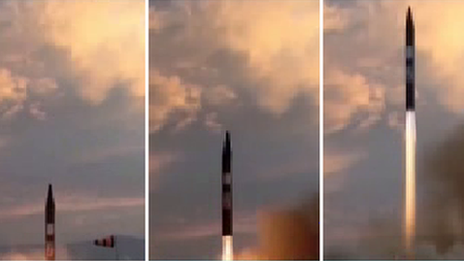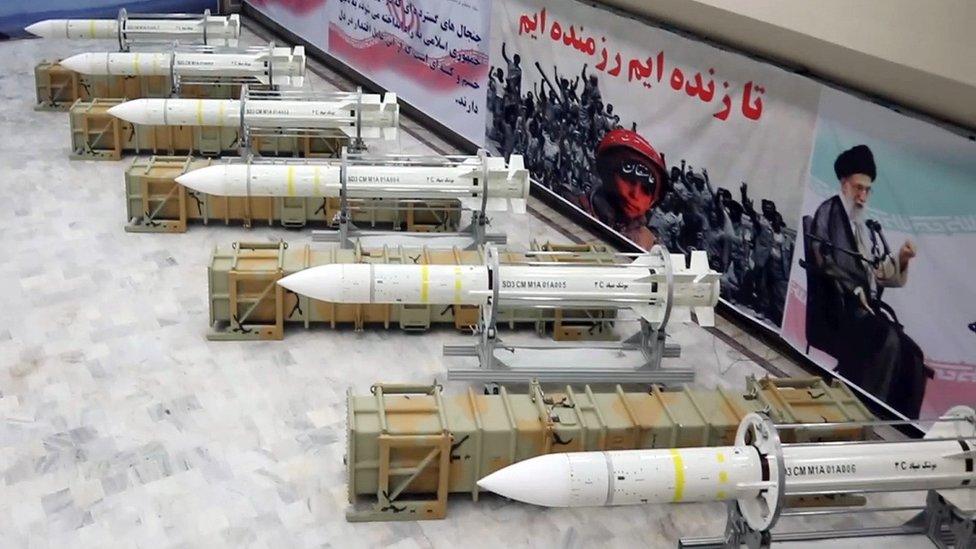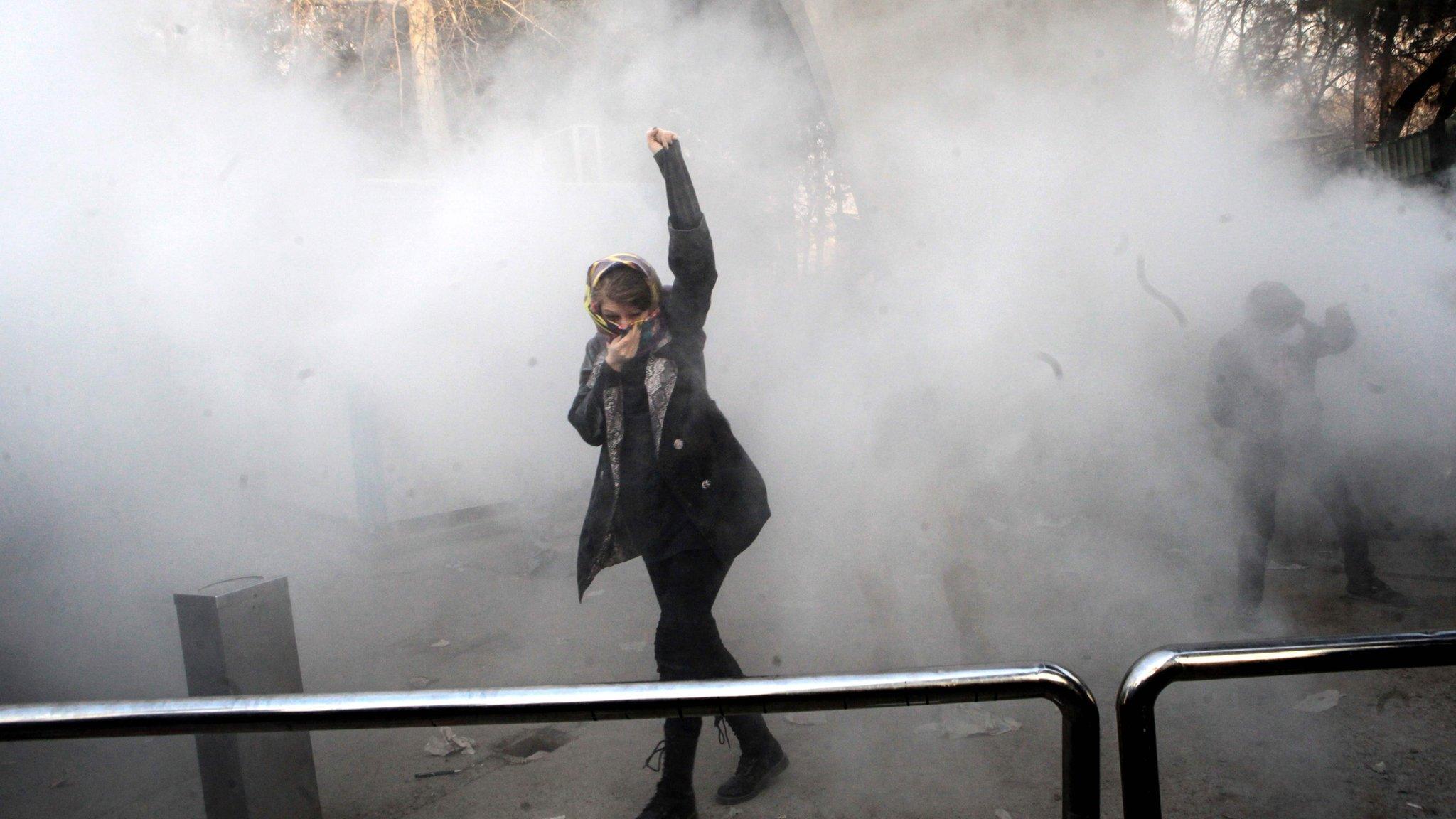US penalises companies linked to Iran missile programme
- Published
Iranian state TV broadcast footage of a missile test in September
The US has imposed sanctions on five Iranian companies it says are contributing to the country's ballistic missile programme.
The sanctions freeze any property the companies hold in the US, and prohibit Americans from dealing with them.
Treasury Secretary Steven Mnuchin linked the move to the recent protests sparked by Iran's economic problems.
"We will not hesitate to call out the regime's economic mismanagement," he said in a statement.
"These sanctions target key entities involved in Iran's ballistic missile programme, which the Iranian regime prioritises over the economic well-being of the Iranian people," the statement said.
Mr Mnuchin accused Iran's government of diverting "significant resources to fund threatening missile systems at the expense of its citizenry".
The treasury department said the five companies that have been blacklisted were all subordinates of Iran's Shahid Bakeri Industrial Group (SBIG), which is responsible for developing ballistic missiles. They are:
The Shahid Eslami Research Center
Shahid Kharrazi Industries
Shahid Moghaddam Industries
Shahid Sanikhani Industries
Shahid Shustari Industries
The US says Iranian ballistic missile tests conducted in the past year violate a UN Security Council resolution that endorses the 2015 nuclear deal between Iran and world powers.
Resolution 2231 calls upon Iran not to "undertake any activity related to ballistic missiles designed to be capable of delivering nuclear weapons, including launches using such ballistic missile technology".
But Iran says the missiles it has tested are not designed to carry nuclear warheads and insists its nuclear programme is entirely peaceful.
Tensions in Iran are running high as people take to the streets to protest against economic hardship and political repression. Twenty-one people have died during six days of protests, the biggest demonstrations the country has seen in almost a decade.
Video from the town of Dorud shows a crowd carrying what appears to be a wounded man
The unrest has further strained relations between Iran and the US.
President Donald Trump tweeted an endorsement of the demonstrations, external, and suggested the US could offer "great support" to protesters.
In response, Iran accused the US of "grotesque" interference in its internal affairs in a letter to the UN.
It said the US leadership, in "numerous absurd tweets, [had] incited Iranians to engage in disruptive acts" which violated international law.
The protests appear to be dying down despite unverified reports of small demonstrations in a number of cities on Wednesday night.
The same day, the head of Iran's elite Revolutionary Guards, said "enemies" had been defeated and the Guards had only intervened in a "limited" way in three provinces.
On Thursday, state television showed large pro-government rallies in Ardabil, Mashhad, Shiraz, Birjand and Isfahan.
- Published23 September 2017

- Published13 August 2017

- Published2 January 2018
